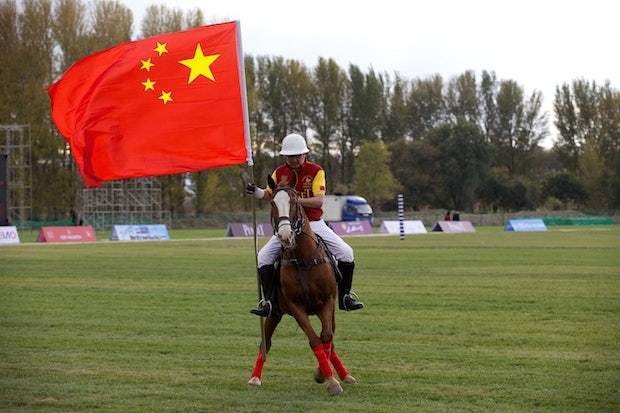
Sunny Times Polo Club owner Xia Yang carries a Chinese flag on the polo field for British Polo Day in Yanqing County outside Beijing on October 19, 2013. (British Polo Day)
In 2011, a swathe of stories appeared in the international press heralding polo as the next big thing among China’s ultra wealthy. Horse imports were on the rise, with 1,300 horses imported in 2010, over roughly 300 five years previous, according to The Wall Street Journal. A handful of polo clubs in Beijing and Tianjin were staging polo matches in lavishly developed complexes, such as the Metropolitan Polo Club in Tianjin, which The Telegraph reported to have been constructing a GBP60,000 video scoreboard to accompany its neo-classical hotel, which had 167 rooms done up in gold accents and marble.
Fast forward to 2013, and at British Polo Day in Beijing—the Beijing chapter of the British organization that stages polo matches in countries worldwide—there were just two Chinese polo players listed as riding in the match: Xia Yang, owner of the Sunny Times Polo Club in Yanqing County, where the match was held, and Wu Zhiwe, both riding for the China Argentina United. The guest list included several hundred local villagers from Yanqing County, invited at the local government’s behest, who were seated across the pitch from a mid-sized crowd comprised of a mix of media and sponsor representatives, and other guests of the Beijing municipal government and the British Polo Day organization. What happened to the expected crowds of wealthy patrons and local polo players?
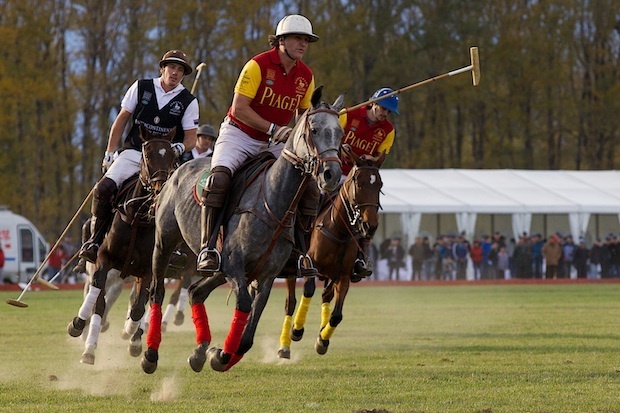
Polo players compete at British Polo Day. (British Polo Day)
In 2011, polo did appear to be a burgeoning hit with the country’s elite, says Leo Wang of China Market Research. “[They] had discovered golf, but this sport had become mainstream for their tastes,” he says. “To their eyes, golf had become neither exclusive nor visible enough, and polo became the next best thing.”
But the difficulties of the game, which takes years to master and considerable time to learn to appreciate, resulted in a quick loss of interest. “The lack of a polo historical culture and historical aristocracy meant that the elite flocked to polo without understanding it,” says Wang. “I believe many of the elite did not have a sufficiently high level of interest to fully dedicate themselves to the sport.” Xi Jinping’s new government and the ensuing crackdown on official spending in 2012 meant memberships and event attendance at obviously lavish clubs began to fall as government officials and the ultra wealthy scaled back on conspicuous consumption, he says.
But though the country’s wealthy may not be saddling up for the next chukka or shelling out for a swank club membership, the social scene surrounding the matches still provides a valuable networking opportunity for sponsors to make business connections with the members of the elite who are specifically invited to the day’s match. “[British Polo Day is about] meeting everybody from the public to government officials to sponsors…just chatting, making contacts, getting out there,” says Robert Ettinger of Ettinger London, a luxury leather goods manufacturer which entered the Chinese market roughly nine months ago.
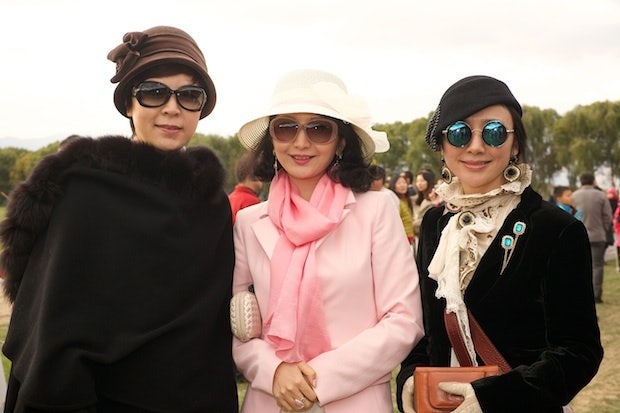
Guests at British Polo Day. (British Polo Day)
Edward Crane, partner at the British law firm Charles Russell—one of a handful of firms in London involved in private client wealth management—flew in to Beijing for a few brief days to attend the polo match. “It’s a business opportunity really,” he says. “It’s amazing what they do, pulling together this global elite… [British Polo Day goes] to 14 different locations, some in emerging markets,” says Crane, who planned to head to the British Polo Day in India next. “What’s so nice about this sort of networking is that it’s very relaxed…events are high quality.”
This year’s British Polo Day came on the heels of a five-day British trade mission to Beijing and an announcement from finance minister George Osborne just prior to the trip of a new visa system that will make it easier for rich tourists and business leaders from China to enter the UK. In addition, on October 15, Beijing agreed to allow investors in London to apply for licenses to directly invest renminbi into China, allowing London to become an influential center for trading yuan.
With a list of sponsors that included Land Rover, Champagne Tattinger, Hackett London, Ettinger London, Charles Russell, Piaget, and InterContinental London and Beijing Financial Street, it’s clear that British businesses are eager to make financial connections in China, something that British Polo Day helps facilitate, says BPD co-founder and polo player Edward Olver. “We must project the best values to encourage foreign direct investment back into the UK, to encourage investment by brands and businesses in the UK,” he says. “In a small way, I’d like to think that we are stimulating that sort of activity both for the promotion of British identity in emerging markets, but also bringing emerging brands into Europe.”
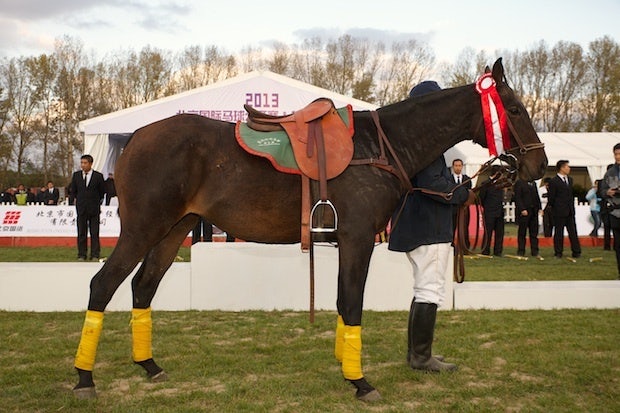
A horse from the competition. (British Polo Day)
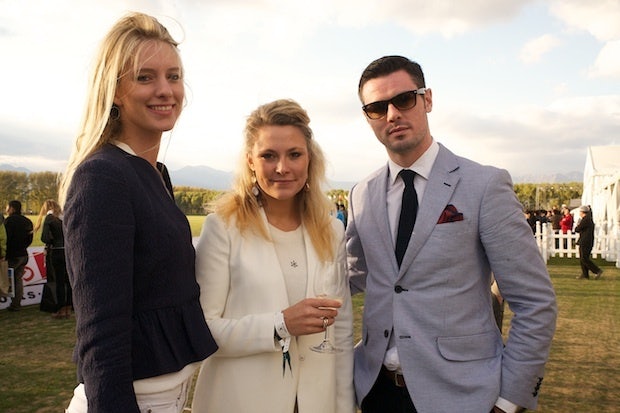
Guests at British Polo Day. (British Polo Day)

Chinese celebrity Angelababy makes an appearance. (British Polo Day)
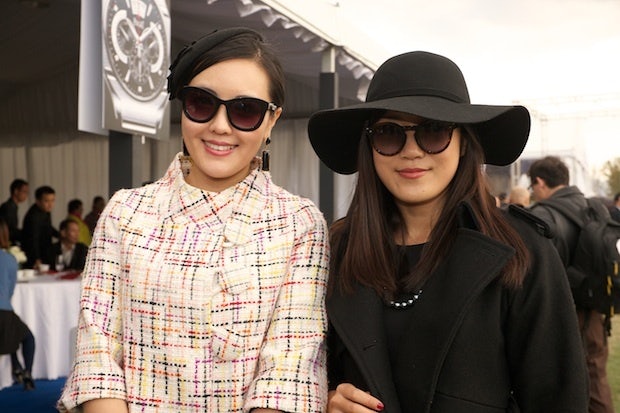
Guests in British garb for British Polo Day. (British Polo Day)
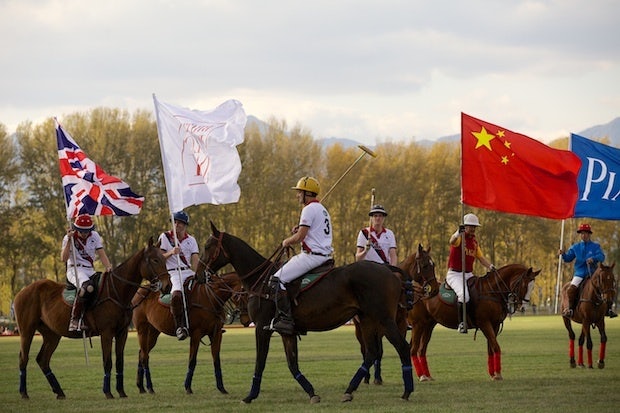
Competitors carry both country and brand flags. (British Polo Day)
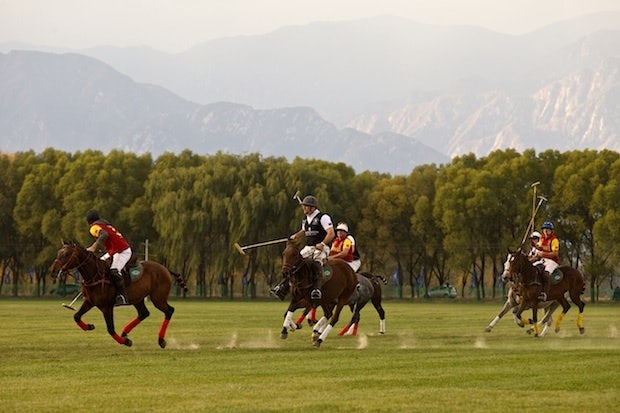
The mountains provide a breathtaking background to the game. (British Polo Day)
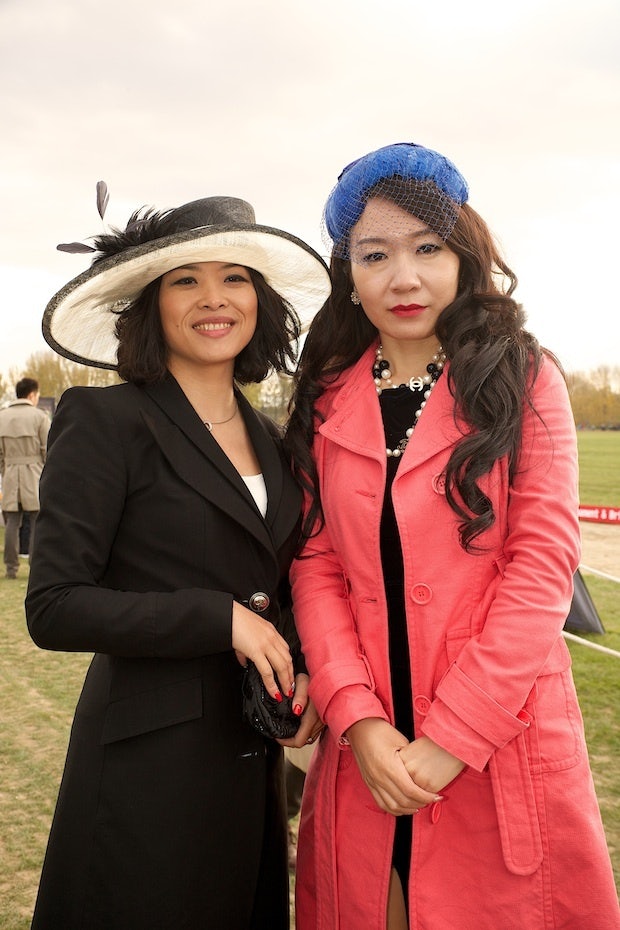
Guests at British Polo Day. (British Polo Day)
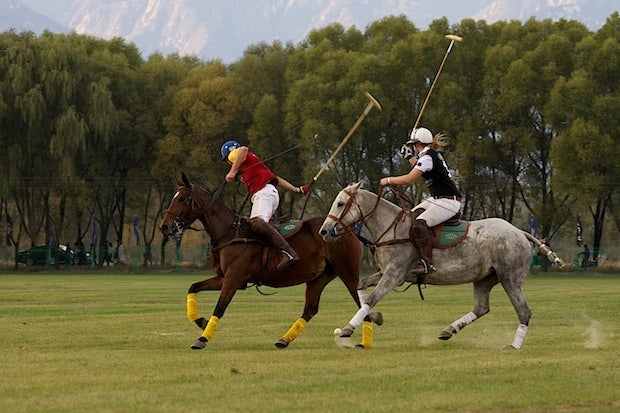
Game action at British Polo Day. (British Polo Day)
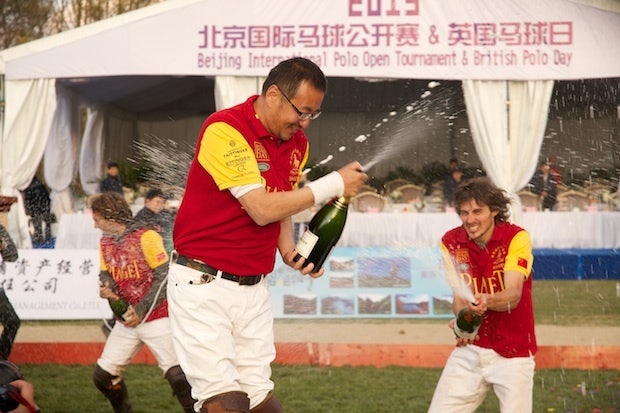
Xia Yang and teammates celebrate their win. (British Polo Day)
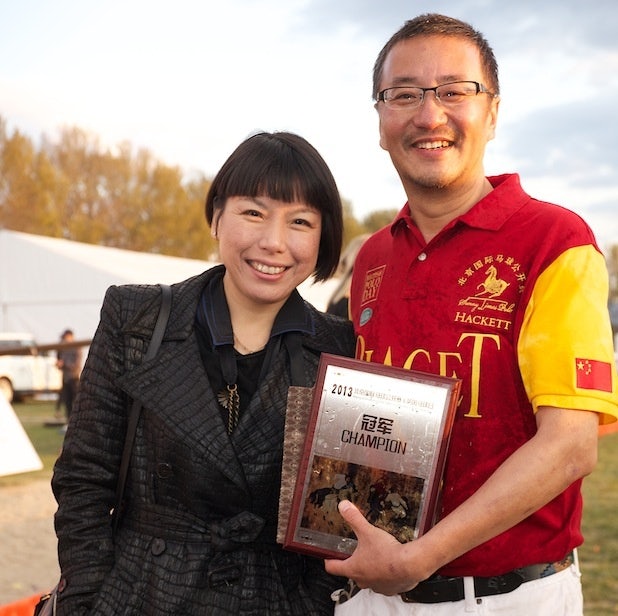
Xia Yang (R) poses with Vogue China Editor-in-Chief Angelica Cheung after his team was victorious. (British Polo Day)